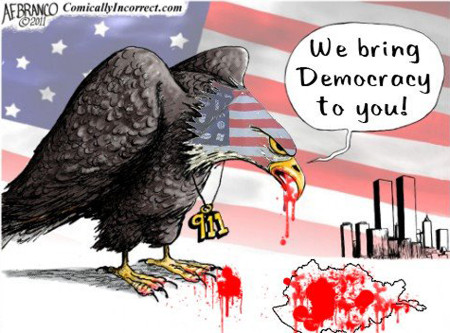by Abdul Qadir Siddiqui
Some Kabul-based political analysts believe the US has “a special role” in Afghanistan’s instability, but others link this and other challenges to the incumbent government’s inefficiency.
The views were aired by participants of this week’s radio and TV programme, “Your Voice”, a joint initiative of the Killid media group and its partners -- Pajhwok Afghan News and Saba Media Organistaion -- within the newly-created Afghanistan Media Consortium.
Military expert Abdul Wahid Taqat, political commentator Mohammad Hassan Wolasmal and former Wolesi Jirga member Moin Mrastiyal, also member of the Right and Justice party, took part in the roundtable.
They discussed the hot-button issues of insecurity and peace, with Taqat saying that all regional countries were pursuing their own conflicting agendas in Afghanistan, but the US had a leading role in the country’s instability.
He alleged the Americans had no interest in rebuilding Afghanistan, but wanted to realise its own strategic goals through the so-called war on terrorism.
“If the US is truly interested in rebuilding Afghanistan, then why does it want the Afghan army strength to be cut?” the defence analyst asked. Another example of the double-standard is the 100,000 empty containers that are being sent back to the US.
“Resending an empty container costs four times more than its original rate. These containers are actually not empty, but full of minerals and uranium found in Afghanistan,” the expert claimed.
Foreigners had not been working in Afghanistan to bring peace and stability to the nation, but to promote their own interests, he insisted. “That’s why the West extended the war to northern Afghanistan to easily enter Tajikistan and Uzbekistan.
“Until outsiders and a foreign-dictated system remain in Afghanistan, there is no hope for peace,” he continued, saying the government and the international community lacked a strong commitment to stabilising a country devastated by decades of war.
Taqat believed the international community and the US knew full well that militant safe havens existed outside Afghanistan, but the war continued to be fought inside the country.
He recalled President Barack Obama’s campaign pledge that he would pull out 30,000 troops from Iraq and use them for operations to destroy militant sanctuaries on Pakistani soil. “But he did not do this because he does want an end to the war.”
Political analyst Mohammad Hassan Wolasmal echoed Taqat’s views, saying the US and its allies had not come to Afghanistan for its reconstruction, but had other goals in its mind.
If the US had been honest in its claims of Afghanistan’s reconstruction, it would have strengthened and trained Afghan security forces, he argued. Billions of dollars given in aid to Afghanistan had been of no use, he believed.
The Americans were in an effort to impose a regime of its choice on Afghanistan, so it could use the system for reaching the desired goals, including control over regional countries, access to hot waters and mineral deposits.
Wolasmal branded Pakistan and Iran as the enemies of Afghanistan, accusing Islamabad of doing all it could to perpetuate the ongoing instability.
Ex-lawmaker Moin Mrastyal, however, blamed Afghanistan’s problems on the inefficiency of the incumbent government, widespread corruption and injustice.
The problems had resulted in a widening gap between the government and the masses, he said. “The enemies of Afghanistan use this opportunity to create problems for us,” the ex-legislator concluded.




